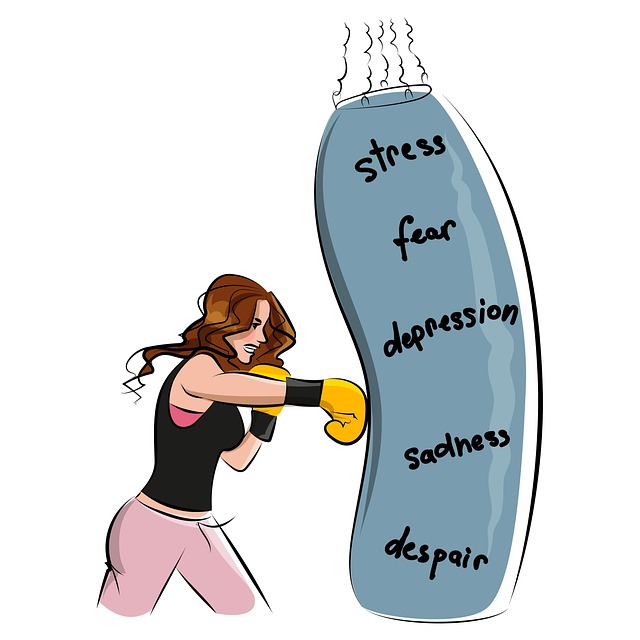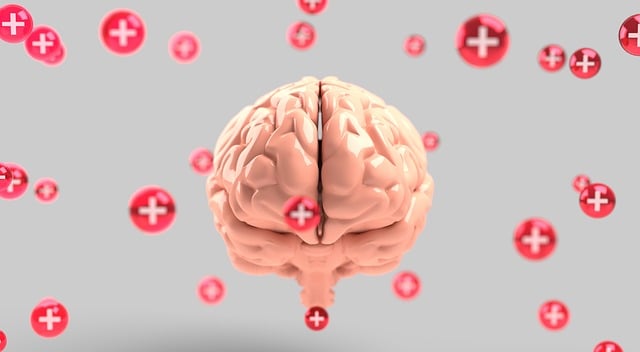Longmont Panic Disorder (LPD) and Anxiety Attacks therapy offers a holistic approach, combining specialized treatment, evidence-based practices, and daily routines to manage intense fear and anxiety. This includes Cultural Competency Training, Conflict Resolution Techniques, Mental Wellness Journaling, stress management workshops, and mental health education programs. Incorporating techniques like mindfulness, breathing exercises, cognitive reframing, and progressive muscle relaxation helps individuals regulate emotions, reduce attack frequency, and improve quality of life through consistent daily practice.
Stress management techniques are essential in combating mental health issues such as Longmont Panic Disorder and Anxiety Attacks. This article delves into understanding these conditions, offering practical strategies for effective stress reduction. We explore various techniques, from mindfulness to cognitive-behavioural therapy, designed to help individuals manage anxiety triggers. Furthermore, we provide insights on integrating therapeutic practices into daily routines for long-lasting relief, focusing on tailored solutions for those seeking peace amidst chaos.
- Understanding Longmont Panic Disorder and Anxiety Attacks
- Techniques for Effective Stress Management
- Integrating Therapy into Daily Life for Lasting Results
Understanding Longmont Panic Disorder and Anxiety Attacks

Longmont Panic Disorder (LPD) and Anxiety Attacks are common mental health challenges that can significantly impact an individual’s daily life. Therapy plays a pivotal role in managing these conditions, offering individuals tools to cope with intense fear and anxiety. Through specialized Longmont Panic Disorder and Anxiety Attacks therapy, individuals learn to identify and challenge negative thought patterns and behaviors that contribute to their symptoms.
The process often involves a combination of evidence-based practices tailored to the person’s unique needs. Healthcare Provider Cultural Competency Training emphasizes understanding diverse cultural backgrounds, ensuring inclusive care. Conflict Resolution Techniques teach individuals strategies to manage and resolve internal conflicts, while Mental Wellness Journaling Exercises provide guidance in tracking thoughts and emotions, fostering self-awareness, and promoting personal growth.
Techniques for Effective Stress Management

Stress management is a vital aspect of maintaining good mental health, especially for those dealing with conditions like Longmont Panic Disorder and Anxiety Attacks. Effective techniques can empower individuals to take control of their well-being. One powerful tool is emotional regulation, which involves recognizing and managing one’s emotional responses. Through mindfulness practices, deep breathing exercises, and cognitive reframing, individuals learn to calm themselves during stressful situations. These techniques have been shown to reduce anxiety and improve overall resilience.
Organizing stress management workshops or enrolling in mental health education programs designed for these specific needs can be transformative. These structured settings offer a safe space to learn and practice coping strategies. Topics may include progressive muscle relaxation, visualization techniques, and time management skills. By participating in such programs, individuals gain valuable tools to navigate their mental health journey, ultimately improving their quality of life and fostering better emotional well-being.
Integrating Therapy into Daily Life for Lasting Results

Incorporating therapy into daily routines is key to managing stress and overcoming conditions like Longmont Panic Disorder and Anxiety Attacks. Effective therapy goes beyond one-time sessions; it’s about fostering a consistent practice that seamlessly blends with everyday life. This could mean setting aside dedicated time each day for mindfulness exercises, such as deep breathing or meditation, which are powerful tools taught in many Mental Health Education Programs Design. By integrating these practices, individuals can learn to recognize and manage triggers, thereby reducing the frequency and intensity of anxiety attacks.
Emotional well-being promotion techniques, like cognitive behavioral therapy (CBT), teach individuals to challenge negative thought patterns and replace them with positive thinking. This shift in perspective is crucial for building resilience against stress and anxiety. Through consistent practice, these techniques become second nature, helping one navigate challenging situations with a calmer mindset. Thus, combining therapy integration and emotional well-being promotion can lead to lasting improvements in managing stress and enhancing overall quality of life.
Stress management techniques, particularly tailored for individuals dealing with Longmont Panic Disorder and Anxiety Attacks, can significantly improve quality of life. By understanding these conditions and employing effective strategies like those discussed here, one can lead a more balanced and serene existence. Integrating therapy into daily routines ensures lasting results, empowering individuals to navigate life’s challenges with resilience. With consistent practice, these techniques offer hope and healing for those seeking to overcome anxiety and panic disorders.














